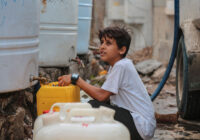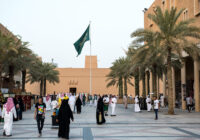Reading tea leaves, even great Moroccan mint tea, is always challenging, especially with data that doesn’t always seem to match up. So, depending on what you’re measuring and where you gather your statistics, the message can vary from so bad to almost great, when it comes to economic performance. So, let’s look at some recent stories about the Moroccan economy and see how they link to the progress that is always the government’s goal.
Foreign Direct Investment
In The Arab Weekly, there was an interesting assessment of why foreign direct investment (FDI) has recently declined in Morocco. The chief culprit seems to be that it is a symptom of the general economic malaise in the European Union, which has long been the top investor in the country. Overall, FDI declined some 17.2% at the end of July compared to the same period in 2018.
Saad Guerraoui writes: “Experts said the Moroccan government must significantly improve the country’s international attractiveness and competitiveness and offer a favourable business environment to foreign companies to be the leading destination for FDI in the [Middle East and North Africa] region.” The article also points to bureaucratic snafus and “meagre tax benefits” as impeding FDI.
Another, maybe not so surprising factor is that Moroccans abroad are not investing as much in Morocco due to the high real estate prices in tourism areas, which have long been a favorite investment destination. Similar properties in Spain and Portugal are more competitively priced. Last year, the EU and Morocco set up a program to improve the business environment and promote economic development.
Johannes Hahn, the commissioner for enlargement negotiations and European neighborhood policy, noted: “The European External Investment Plan will help leverage significant private funds into key sectors of Morocco’s economy. The plan will in turn empower local entrepreneurs and create jobs in the country.”.
Business Hub
There’s some good news. The 2019 International Franchise Attractiveness Index ranked Morocco 39 out of 131 states. This made it the number 1 attractive business hub for US-based franchises in Africa and the second in the Middle East and North Africa (MENA) after the United Arab Emirates. This ranking shows it competing with some leading international powers, including France, Spain, Germany and Australia, according to a report by Morocco World News. The index combines peer-reviewed research and a survey of franchise executives to produce two rankings, balanced growth and aggressive growth.
These results support the 2019 Investment Climate appraisal from the US State Department that said “Morocco’s political stability, geographical location, and efforts to build a robust infrastructure, contribute ‘to its emergence as a regional manufacturing and export base for companies.’” That report also mentioned Morocco’s strategy for attracting investors, with several measures in place, including facilitating foreign investment in export-oriented sectors like manufacturing (i.e., cars).
Tourism in Morocco
Another area drawing attention is, of course, tourism. Reporting on the Travel and Tourism Competitiveness Report 2019, Kawtar Ennaji writes that “Morocco boasts the MENA region’s top TTCI [Travel and Tourism Competitiveness Index] scores on natural resources, North Africa’s best enabling environment, infrastructure, and tourist service infrastructure.” Criteria include the “set of factors and policies that enable the sustainable development of the Travel & Tourism (T&T) sector, which in turn, contributes to the development and competitiveness of a country.” This includes government support for the tourism sector, natural attractions, ease of access, tourism infrastructure, marketing, and security and stability.
In other news, the Dakhla port is moving ahead. In line with the country’s 2030 National Ports Strategy, the Moroccan government has given the go-ahead for the formation of a Dakhla Atlantic Port committee to oversee the construction of the port project, which includes a broad range of infrastructure projects with a value in excess of $1 billion.
“The committee is expected to launch a tender for the project, which is expected to take some seven years, in the last three months of 2019, according to a report by Morocco World News. King Mohammed VI has mentioned that the port will make Dakhla a significant link in Morocco’s outreach to business in Africa.
There’s also relief for the traveler. It’s time to say goodbye to the immigration cards that have to be filled out at the ports of entry. Currently, travelers must fill out their details on an immigration form and hand it to the border police before going on to baggage or customs. This is just another great step forward in promoting travel to Morocco.
A New Development Model
One final piece is a commentary on the king’s directive to appoint a committee to come up with a new development model for the country. An article by Menas Associates points out that the failure to achieve sufficient progress in past efforts was not due to the absence of plans, from the National Initiative for Human Development (INDH) to the Economic, Social and Environmental Council (CESE) recommendations for the south. While much has been achieved, full implementation has not always occurred.
The report reads: “This is due to various reasons, including: the lack of follow up; the absence of real expertise; a lack of finance; and perhaps most important of all, the pervasive corruption that has seen funds that have been earmarked for development projects being siphoned off or wasted. There is also the problem of the government’s hands being tied with those around the King still holding the real reins of power.” It hopes that the government will have a higher degree of success than past efforts to combat the unrest and protests that regularly occur and make a qualitative difference in the lives of Moroccans.
*[A version of this article was originally published by Morocco on the Move.]
The views expressed in this article are the author’s own and do not necessarily reflect Fair Observer’s editorial policy.
Support Fair Observer
We rely on your support for our independence, diversity and quality.
For more than 10 years, Fair Observer has been free, fair and independent. No billionaire owns us, no advertisers control us. We are a reader-supported nonprofit. Unlike many other publications, we keep our content free for readers regardless of where they live or whether they can afford to pay. We have no paywalls and no ads.
In the post-truth era of fake news, echo chambers and filter bubbles, we publish a plurality of perspectives from around the world. Anyone can publish with us, but everyone goes through a rigorous editorial process. So, you get fact-checked, well-reasoned content instead of noise.
We publish 2,500+ voices from 90+ countries. We also conduct education and training programs
on subjects ranging from digital media and journalism to writing and critical thinking. This
doesn’t come cheap. Servers, editors, trainers and web developers cost
money.
Please consider supporting us on a regular basis as a recurring donor or a
sustaining member.
Will you support FO’s journalism?
We rely on your support for our independence, diversity and quality.






